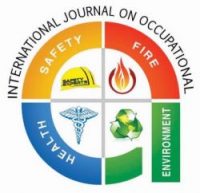Authors: Prashant Pandey, Vipin Kumar Saini.
Ref: Int J OHSFE-Allied Sci./Vol. 5/Issue 1/July-Sep,2015/017-019.
Abstract:
Low-cost Mesoporous Carbon Replica was synthesized via sucrose as carbon source and polyurethane foam (PUF) as template for removal of pharmaceutical pollutant such as Paracetamol from waste-water generated by pharmaceutical industries. Prior to impregnation on PUF, Sucrose dissolve in Distilled water have conc.H2SO4. After impregnation sample set aside in oven at 1000C for 6hr follow by polymerization at 1600C again for 6 hr. During heating to carbonization temperature (2900C) impregnated resins were cured and name as Carbon Replica (CR-1). The maximum Adsorption capacity was 2.989 mg/g of Paracetamol on CR-1 calculated. Further heating treatment to CR-1 from 2900C to 3100C and is named as CR-2 shows subordinate adsorption capacity 0.5 mg/g of Paracetamol and 3100C to 3300C named CR-3 shows zero adsorption capacity. Hence this study shows increase in temperature has adverse effect on surface area of Mesoporous Carbon Replica. This significance validate the feasibility of CR-1 Carbonized at 2900C for highly effective removal of Paracetamol from aqueous solution.
To Read the Complete Article Visit the link: Synthesis of Low Cost Carbon Replica for Paracetamol Removal for Waste Water and Effect of Temperature on Adsorption Capacity.
